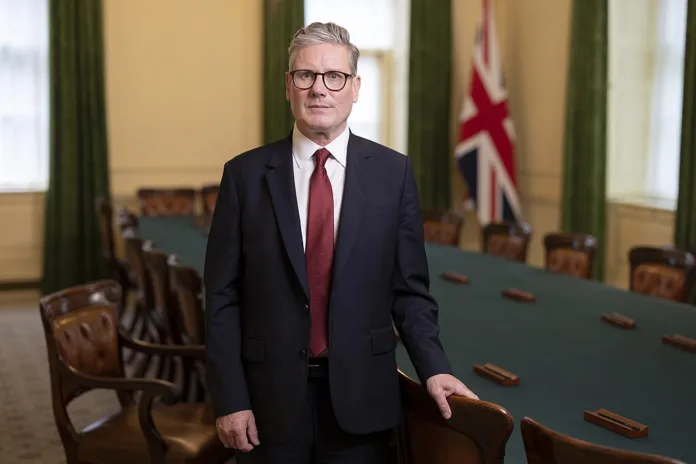UK joins allies to restore flights into Ukraine and secure its skies after peace deal
Britain has pledged to play a central role in reopening Ukraine’s skies once a ceasefire with Russia is secured, in a move designed to bolster the country’s economy and reaffirm its sovereignty after more than three years of war.
Sir Keir Starmer confirmed that the UK will join forces with France and over 30 other nations in what has been dubbed the Coalition of the Willing, a group determined to enforce peace and rebuild Ukraine. A key aim is to re-establish “normal” international air travel into and out of Ukrainian cities, restoring the flow of people and commerce that has been absent since the Russian invasion in 2022.
Royal Air Force fighter jets will patrol the skies alongside European partners to guarantee safe conditions. The military presence is intended both to deter Russia from launching another assault and to reassure airlines that civilian routes can resume without fear of attack.
The initiative will also focus on reopening Ukraine’s Black Sea ports, with efforts underway to accelerate mine-clearing operations. Restoring maritime trade is considered essential for Ukraine’s battered economy, providing vital export routes for grain and other goods.
Embed from Getty ImagesFor European travellers, the benefits would be immediate. For more than three years, flight paths across the continent have been dramatically altered to avoid Ukrainian airspace, lengthening journeys and adding costs. Restoring direct routes would cut flight times between Western Europe and destinations further east.
Satellite maps of the skies tell their own story: from Portugal to the edge of Ukraine, a dense web of commercial aircraft gives way abruptly to empty horizons. Ukrainian officials have long argued that re-opening these routes is symbolic as well as practical — proof that their nation is re-emerging from the shadow of war.
Behind the scenes, planning for a post-war security framework has intensified in recent months. Starmer and French president Emmanuel Macron have taken the lead, establishing a joint headquarters in Paris to coordinate strategy. Both leaders are determined that countries willing to commit forces or resources should not be held back by others more reluctant to act.
The coalition’s objectives go beyond enforcing a ceasefire. Leaders are also considering how to block Russia from rebuilding its military capacity once the guns fall silent. The fear is that Moscow could exploit a lull to rearm and prepare for another full-scale offensive, repeating the cycle of violence.
The UK prime minister has emphasised that safeguarding Ukraine’s independence is about more than military deterrence. It is also about securing the infrastructure that allows a country to function as part of the global economy. Airports and ports, he argued, are as vital as tanks and troops.
European diplomats say the reopening of airspace is a cornerstone of what they describe as Ukraine’s “normalisation” process. By restoring daily patterns of travel, trade, and tourism, the West hopes to send a powerful message to both Ukrainians and Russians: that peace brings prosperity, while war brings isolation.
Yet challenges remain. Any ceasefire deal will need to address the mechanics of airspace security, insurance cover for airlines, and the deployment of peace-keeping forces. The presence of RAF jets and their allies is expected to provide the necessary assurances, but questions linger over how long Western nations will be willing to commit such resources.
For now, the ambition is clear. Britain and its partners want the first passenger planes to descend once again on Kyiv and other Ukrainian cities — not as a symbol of defiance, but as evidence that peace, fragile though it may be, has taken hold.
